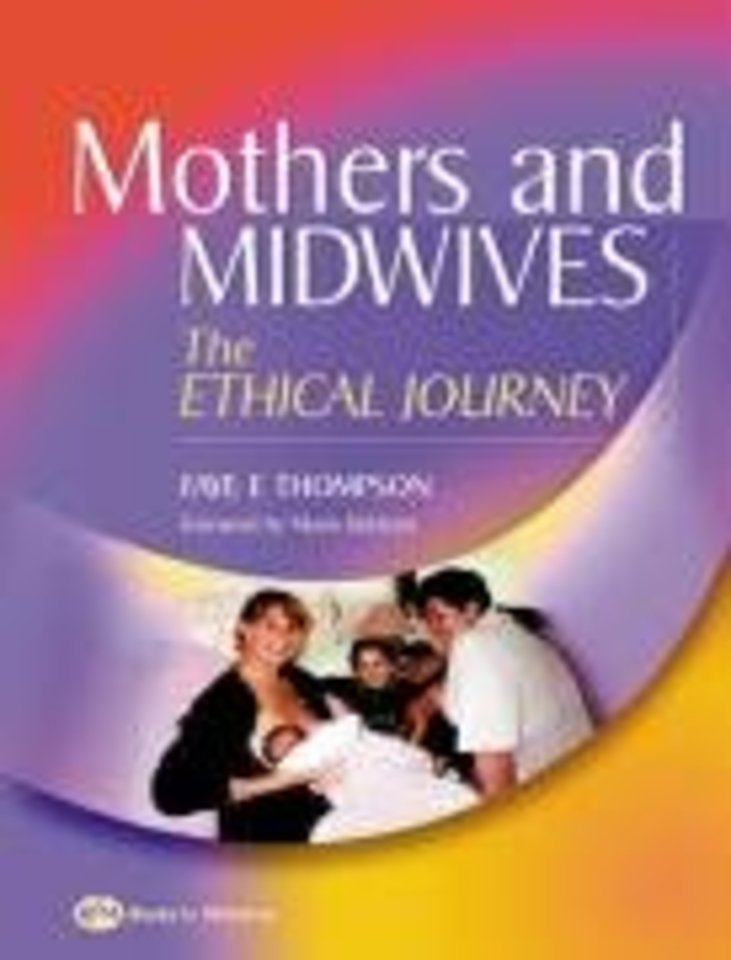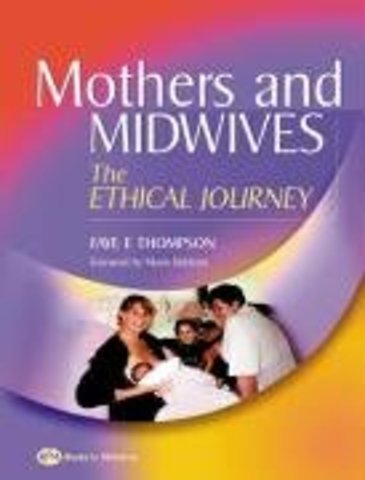Foreword<br>Acknowledgements<br>Glossary of terms and context of analysis<br>Glossary of terms<br>Context of the analysis<br>Introduction<br>References<br><br>CHAPTER 1: The need for a midwifery ethic of practice<br><br>The metaphor<br>Looking for the pool of ethics: a personal journey<br>Ways of seeing: ways of acting<br>The social construction of our world<br>The nature of 'practice'<br>References<br><br>CHAPTER 2: On the sealed highway - mainstream ethics, medicalisation and midwifery<br><br>The nature of midwifery practice<br>The influence of moral philosophy, and nursing ethics<br>Moral philosophy and mainstream ethical frameworks available to midwives<br>Why midwives would be turning to mainstream ethical frameworks<br>Summary<br>References<br><br>CHAPTER 3: The false trail - a critique of bioethics and the problem-solving approach for midwifery ethics<br><br>Bioethics - its development and critics (the pool of ethics)<br>Casuistry and context<br>Quandary or dilemma-based ethics<br>Contextualism<br>A critique of the normative, dilemmic/problem-solving approach of bioethics for midwifery<br>When the situation is stripped of context<br>When the subject is depersonalised<br>The abstract nature of principles<br>What is ethically 'good'?<br>Prior ethical practice , character, virtues and relationships<br>Summary<br>References<br><br>CHAPTER 4: Midwifery's detour through nursing ethics - a critique of professional codes and influences that shape the midwifery ethics discourse<br><br>Traditions of a professional practice, institutionalisation, and application of a code<br>a critique of ethical codes<br>Perceived strengths of codes<br>Perceived weaknesses of codes<br>How ethical discourse in midwifery is shaped<br>Educational curricula and their ethical orientation<br>The workplace setting and institutional influence<br>Text books, journals and conference presentations: their ethical orientation<br><br>CHAPTER 5: Off the beaten track - feminist virtue ethics and midwifery<br><br>Values and assumptions of feminist theory - epistemology and ontology<br>A feminist approach to ethics in midwifery<br>Virtue Ethics - context, character and relationship<br>Narratives, identity and traditions<br>The public and private<br>Privilege<br>Difference<br>Normal/Abnormal - The impact of linguistics<br>Metaphors in childbirth reveal practice orientation<br>Summary<br>References<br><br>CHAPTER 6: A conducted tour or independent travel? examining underlying assumptions and values<br><br>Owners of the original knowledge<br>Profiles of those women telling their experiences<br>The informant-researcher relationship<br>Constructing consensual meanings<br>Mothers' and midwives' shared values<br>Power in relationships<br>Power 'over' - exploitative, manipulative<br>Power 'for' - nutritive<br>Power 'with' - integrative<br>Summary<br>References<br><br>CHAPTER 7: Facing obstacles along the way - mothers' and midwives' narratives of unethical childbirth practices<br><br>Institutional dominance<br>Paternalism<br>Lack of self-determination<br>Fear, Safety, Mortality-Morbidity (negativity of attitude)<br>Unsupportive of the woman<br>Procedure-oriented approach; 'system workers'<br>Values conflict<br>Workplace/service provider versus personal/professional midwifery ethics<br>Not valuing individuals<br>Emotions/feelings<br>Summary<br>References<br><br>CHAPTER 8: Going to a comfortable place - the ethical voice of mothers and midwives<br><br>'Being with' woman<br>Values-Virtues<br>Supporting the woman<br>Knowing the woman<br>Woman's comfort: security, 'safe' for the woman<br>Ways of seeing<br>Metaphors used by mothers and midwives<br>Personal transformation<br>Summary<br>References<br><br>CHAPTER 9: Checking our course - values and philosophical foundations of the midwifery profession<br><br>The philosophy and theory behind midwifery practice<br>Ways of knowing: midwifery's epistemology<br>Ethical theories and principles 'incorporated'<br>Ways of seeing and construction: orientation<br>Practitioner definitions of midwifery practice<br>Practitioner identified philosophy of midwifery practice: values and beliefs<br>Summary<br>References<br><br>CHAPTER 10: Plotting our practice - values and philosophical foundations of the birthing environment<br><br>The power of language<br>Birth language<br>A concept analysis of normal labour<br>Practice decisions and conflict between work place and personal/professional ethics<br>The midwifery relationship<br>Summary<br>References<br><br>CHAPTER 11: The discourse of other travellers - literature on women's experiences<br><br>The birth: women's experiences<br>The midwife's approach: women's experiences<br>Summary<br>References<br><br>CHAPTER 12: Mapping a new ethic for midwives - from 'practice estate' to the pool and back, now a return journey travelled in tandem<br><br>The ethic of engagement - a midwifery ethic<br>The nature of engagement in ethical responses and relationships<br>The centrality of concepts which emerged from real life experience and literature, in an ethic of midwifery<br>Implications for practice and recommendations<br>References<br>Conclusion

